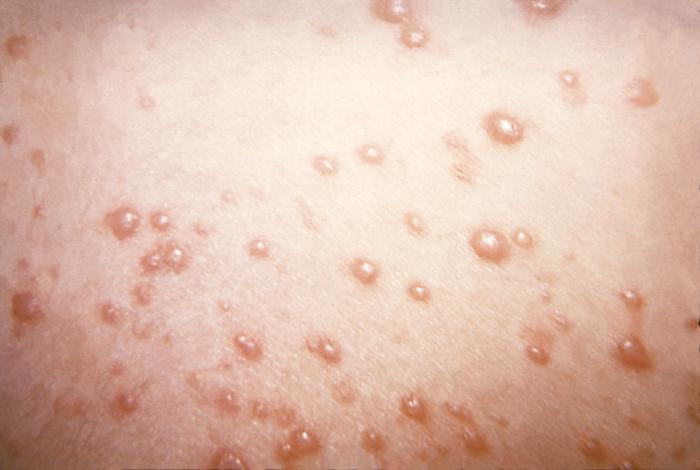Health officials in South Carolina have reported on a cluster of chickenpox at Wando High School in Mount Pleasant. The initial notification occurred last month and yesterday they noted the school has reported addition cases of the childhood viral disease.

In a letter from the Lowcountry Public Health Region, they advise parents to ensure their child’s vaccines are up to date. School age children are recommended to have two doses of the chickenpox vaccine.
The letter also states that students who have not previously had chickenpox and who have never been vaccinated against chickenpox, and choose not to receive the varicella vaccine, will be excluded from school. Exclusion will continue until 21 days after the rash onset in the last identified chickenpox case at the school.
Chickenpox is a common, usually benign childhood disease caused by the varicella-zoster virus (VZV), a member of the herpes family. This virus causes two distinct diseases; varicella (chickenpox) is the primary infection, and later when VSV reactivates,herpes zoster (shingles).
Chickenpox is highly contagious and is spread by coughing and sneezing, by direct contact and by aerosolization of the virus from skin lesions. You can also get it by contact with the vesicle secretions from shingles.
The disease is characterized by fever and a red, itchy skin rash of that usually starts on the abdomen, back or face and then spreads to nearly all parts of the body. The rash begins as small red bumps that appear as pimples or insect bites. They then develop into thin-walled blisters that are filled with clear fluid which collapse on puncture. The blisters then breaks, crusts over, and leaves dry brown scabs.
The chickenpox lesions may be present in several stages of maturity and are more abundant on covered skin rather than exposed. Lesions may also be found in the mouth, upper respiratory tract and genitals.
Chickenpox is contagious from 1-2 days before the rash forms and continues until all the lesions are crusted over (usually about 5 days).
This disease is more serious in adults than in children. Complications of chickenpox are rare, but include pneumonia, encephalitis and secondary bacterial infections.
Infection with this virus usually gives lifelong immunity, although second attacks have been documented in immunocompromised people. The viral infection remains latent, and disease may recur years later as shingles.
According to the Centers for Disease Control and Prevention (CDC), the chickenpox vaccine is the best protection against chickenpox. The vaccine is made from weakened varicella virus that produces an immune response in your body that protects you against chickenpox. The chickenpox vaccine was licensed for use in the United States in 1995.
Related:
- Zika history: A timeline to a public health crisis
- Yellow fever outbreak in Angola: Vaccination campaigns to extend to Huambo and Benguela provinces
- Colorado reports hantavirus death in Saguache County resident


One thought on “Chickenpox cluster reported at Mount Pleasant school”